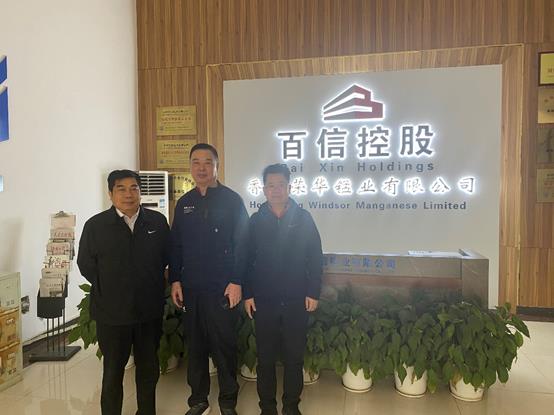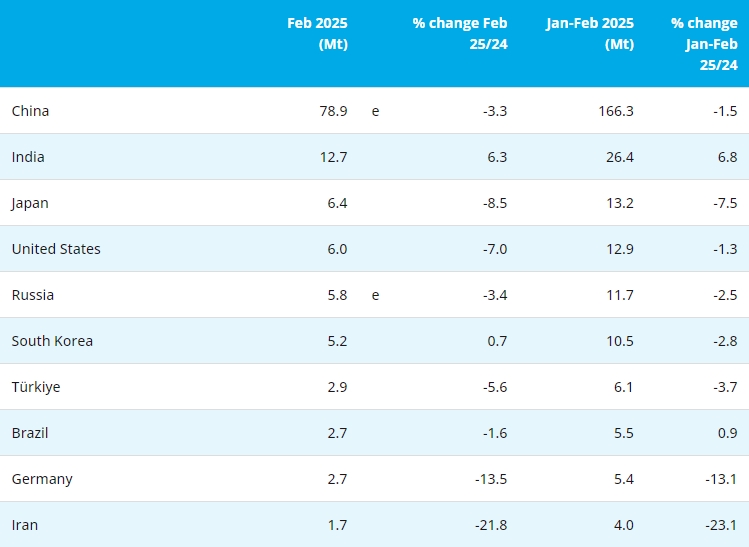[ferro-alloys.com]Standard Lithium plans to advance a new source of US lithium supply by finalizing a proof-of-concept for its direct extraction demonstration plant in southern Arkansas before the end of this year, according to company CEO Robert Mintak.
Standard's plant utilizes the company's proprietary "LiSTR" direct extraction process to pull lithium ions from waste brine byproduct and produce high-purity lithium chloride, Mintak said in an interview with S&P Global Platts. The brine is sourced from bromine processing facilities in the region, he added.
"No one is as advanced as we are in the direct extraction space, and I could probably name half a dozen that are looking at direct extraction across the broader fairway," Mintak said.
As part of an agreement, Mintak said Standard processes waste brine provided by German-based chemical company Lanxess, which operates several bromine operations in southern Arkansas.
"We were just very fortunate in that the timing of our entry into Arkansas coincided with the Lanxess purchase of Chemtura in 2017 to get into the bromine business," Mintak said. "It allowed us to propose the lithium-from-brine extraction process to Lanxess ... which is more cost-effective than higher risk underground resource exploration."
Lanxess, like other bromine plants in Arkansas, processes bromine from the region's oil field brines.
One of the advantages of the LiSTR method is its scalability to adapt in response to current market and demand conditions, Mintak added.
"As you need demand, you can increase brine flow, but if the industry is looking like there is oversupply, you can turn the spigot down and you don't produce as much," he said. "It's much more scalable, and it reduces that all-in capital risk."
Mintak said the extraction process is also beneficial because it produces lithium chloride in a matter of days, as opposed to evaporative pond-based brine operations, which take months.
Building a lithium hub in Arkansas
Mintak said southern Arkansas is a prime location for lithium development with direct extraction because the region is already equipped with critical infrastructure from its existing oil refinery and bromine-focused chemical industries.
"The plant is well positioned to go from proof-of-concept direct to commercial development without all the other hurdles of feasibility studies, permits, and then going and putting in all the infrastructure and wells and pipelines," Mintak said. "It bolts on to the existing bromine operations and then can grow organically into a bigger opportunity."
Unlike other upstream lithium operations located in remote areas of Australia and South America, Mintak said Standard's facilities near El Dorado, Arkansas, had several advantages including reliable access to local supply chains, regional workforce, major manufacturing markets, water and low-cost power.
"Once a commercial extraction project has been shown to be economic and scalable to produce a high-purity material at the end of it, you'll see this grow as a safe region to build and an area where you can do the complete upstream development right to the full chemical industry for high-purity lithium compounds, not just extraction," Mintak said.
Next steps
Mintak said the upcoming proof-of-concept finalization for the LiSTR demonstration plant will officially consummate Standard's planned joint venture with Lanxess as the two companies prepare to expand operations.
"The proof-of-concept is the conversion of the lithium chloride that the LiSTR extraction plant produces into a battery-quality lithium carbonate," Mintak said, adding that the conversion will be facilitated by a third party using a classic batch carbonation process.
In addition to the LiSTR plant, Standard is also operating a separate facility in British Columbia, Canada that converts the lithium chloride from Arkansas into lithium carbonate, the material needed to manufacture battery cathodes.
Once coronavirus pandemic-related border restrictions between the US and Canada are eased, Mintak said Standard will relocate the carbonate plant to Arkansas. The company is initially targeting annual lithium carbonate production of about 21,000 mt after both facilities are operating at a commercial level.
Looking to the future, Mintak said Standard's Arkansas operations can expand beyond the 21,000 mt/year target, especially since its direct extraction process is not reliant solely on the processing of waste brine from bromine plants.
"You can take the lithium out of the brine before the bromine extraction, or the project could grow from the 21,000 mt we are targeting from waste brine to a three or four multiple of that by going into areas where bromine has been depleted but the lithium is still in place, increasing production through the pipeline systems that are only at capacity for bromine contracts or going into undeveloped leases that exist and really building out the project," he said.
Mintak said the operation will be phased in a measured way and should be prepared to meet growing lithium demand once market conditions improve from recent downturns in 2019 and 2020.
"Money hasn't been deployed for project developments, and we are at that sweet spot because the price has come down substantially from its highs in 2017 and 2018, but that lack of new investment coming into the space is going to cause another supply crunch," Mintak said. "That will happen, if everything times right, as we are moving into commercial production."
(S&P Global Platts)
- [Editor:王可]



 Save
Save Print
Print Daily News
Daily News Research
Research Magazine
Magazine Company Database
Company Database Customized Database
Customized Database Conferences
Conferences Advertisement
Advertisement Trade
Trade








 Online inquiry
Online inquiry Contact
Contact

Tell Us What You Think